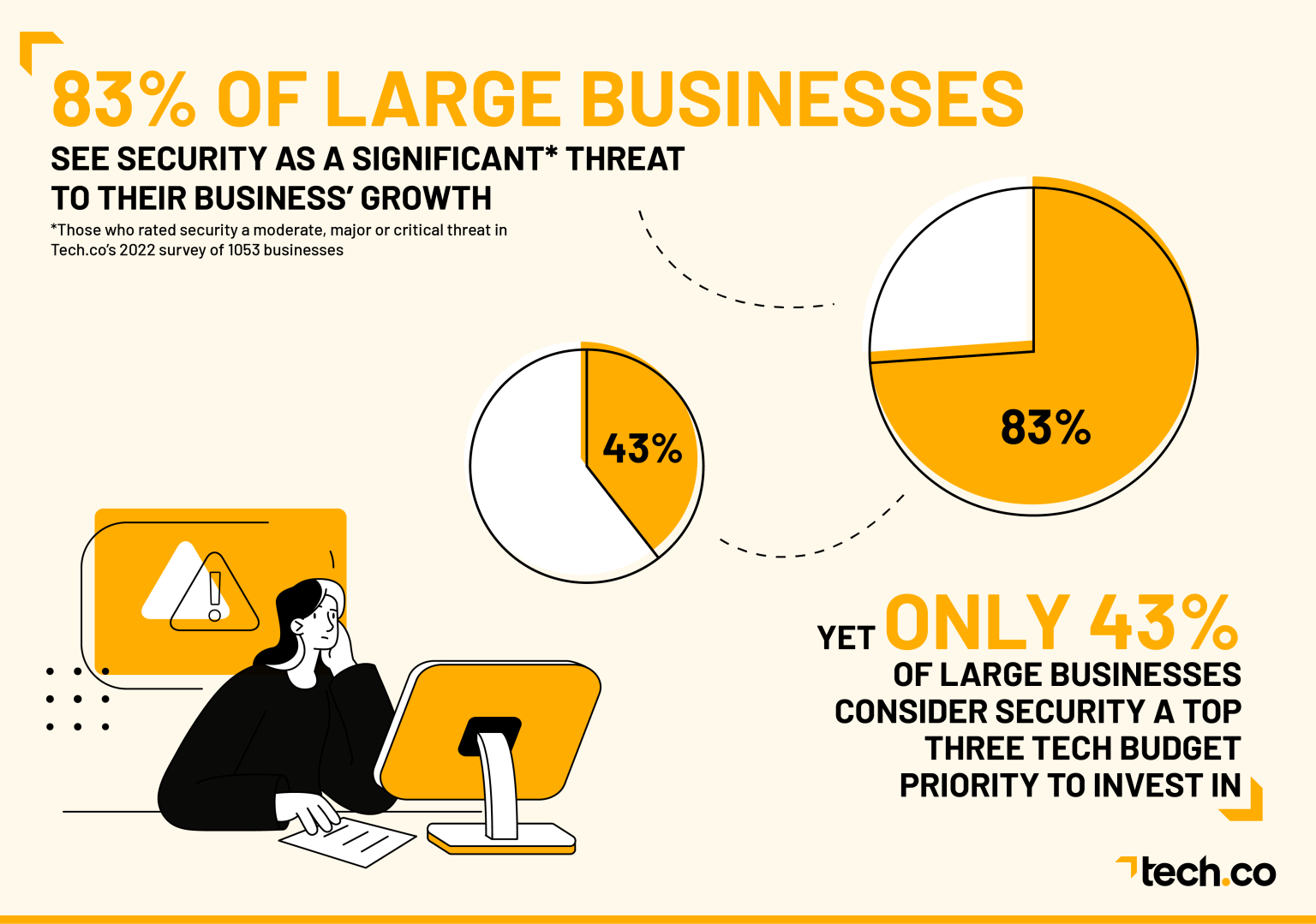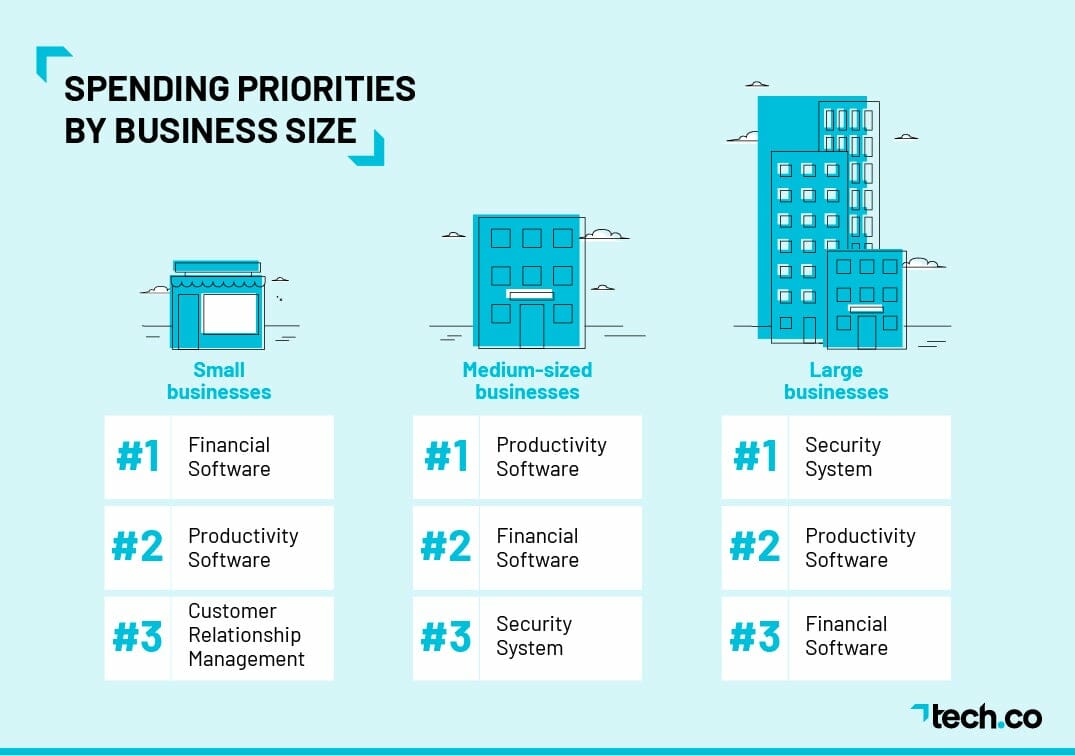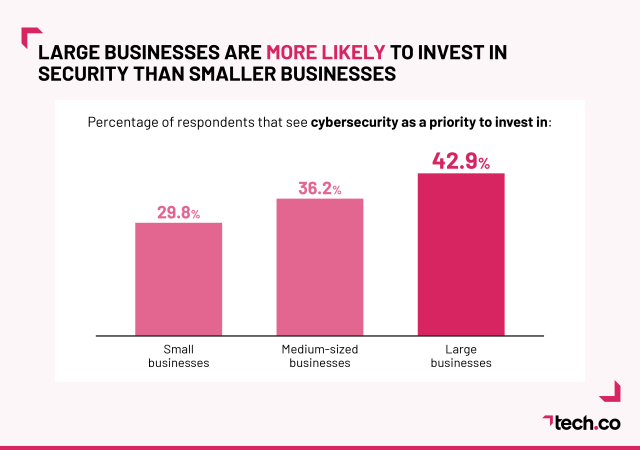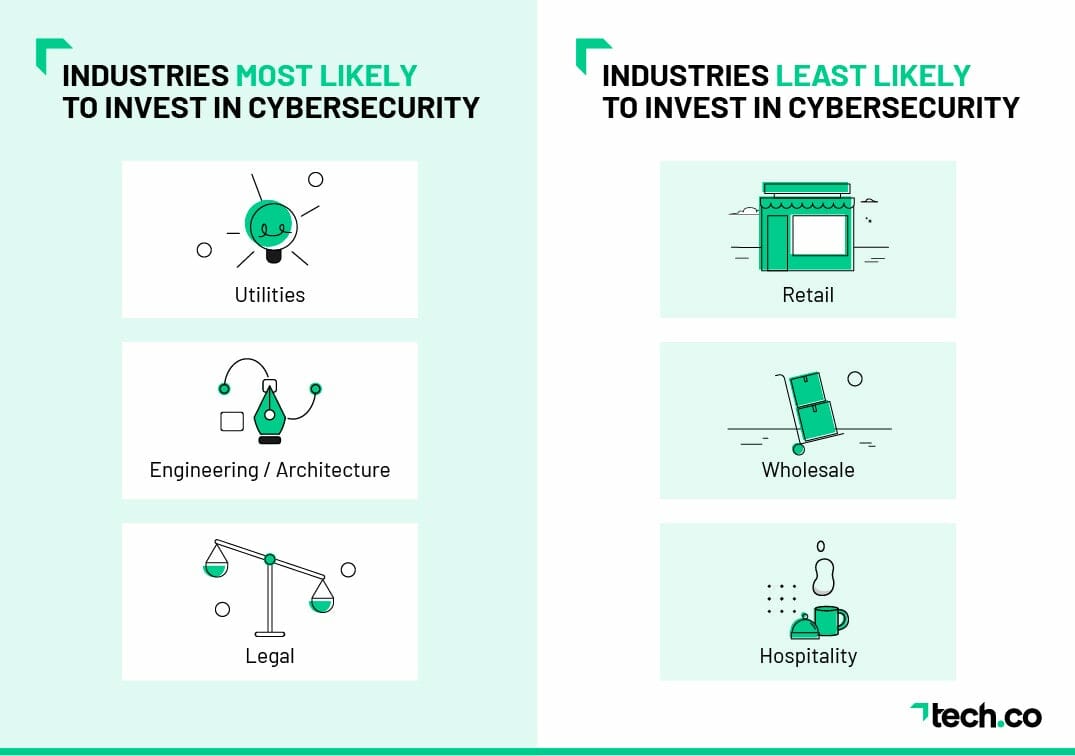Cybersecurity threats continue to be on the rise and yet businesses of all shapes and sizes are still not prioritizing investment to protect themselves.
Cybersecurity threats can put businesses of all shapes and sizes at unprecedented risk.
Despite the repercussions of an attack, Tech.co’s new cybersecurity data survey shows that most small businesses, and even a substantial number of larger firms, don’t see cybersecurity as a budget priority.
Q2 2022 hedge fund letters, conferences and more
The unfortunate fact is that cybersecurity attacks are on the rise and can end up costing businesses millions in lost custom and rectification costs.
Cybersecurity As A Threat To Business
In a digital age, data security should be a top priority for businesses of all sizes, and whilst 83% of large businesses surveyed by Tech.co see cybersecurity as a threat to business growth, only 43% see it as a top three tech area to invest in.
Of course, it’s perhaps no surprise that larger businesses are more likely to acknowledge the threat of cybersecurity attacks, after all, they literally have more to lose.
A cyber attack of any size could end up costing them millions and yet there’s still a massive number of large-sized businesses who are unwilling to place cybersecurity as an investment priority.
For businesses operating in an online environment, digital investment is key. Whether it’s targeted solutions, bespoke platforms, or optimized websites, businesses are willing to prioritize solutions to increase productivity and sales, but forget about security.
Cybersecurity attacks and threats can have a major impact on a business's ability to grow.
Although small businesses are less likely to face a cybersecurity attack than larger or medium-sized alternatives, they still need to be prepared. And yet the Tech.co stats show that just 29.8% of small businesses see cybersecurity as an area to invest in.
This reluctance is even starker when of those surveyed, 63% of small businesses admitted to viewing cybersecurity as a significant threat to their growth abilities.
Investing In Cybersecurity
So if small businesses aren’t investing in cybersecurity, what are they prioritizing? The figures suggest that for small businesses financial software, productivity software and customer relationship management are the top three spending priorities.
For medium-sized businesses, security software is the third spending priority and it’s only large businesses who are willing to put cybersecurity at the top of their tech spending priority list.
For the cybercriminals behind attacks, it’s large businesses that offer the biggest rewards whether that’s through the data they steal or ransoms.
The Tech.co insights also allow us to understand not only where cybersecurity is on the list of priorities based on business size, but also which industries are most likely to invest in a security system…and which aren’t.
The discrepancy between industries as to who is willing to invest in cybersecurity and who isn’t is worrying and suggests that the industries that are not yet prioritizing cybersecurity investment are yet to fully understand the threat.
Utilities, engineering/architecture, and legal are the three industries that are supposedly most likely to invest in cybersecurity whilst retail, wholesale, and hospitality are at the bottom of the list.
Of course, a commitment and willingness to invest in cybersecurity is one thing but with new viruses, data breaches, and attacks seemingly popping up every day, keeping cybersecurity up to scratch is difficult.
The good news is that antivirus software and password managers have helped to keep cyber attacks at bay for millions of companies worldwide. The Tech.co survey found that 49% of businesses surveyed used antivirus software to protect their company and of those, 80% were happy that it was accurately protecting their assets.
Whilst antivirus software is one of the most common cybersecurity methods, password managers are becoming increasingly popular too. Allowing businesses to prevent staff and users from opting for weak, easy-to-hack, and repeated passwords, 32% of businesses said they already have such a system in place.
With so many companies now adopting a digital-led work approach, especially in recent years with the increase of hybrid workforces, cyber-attacks and security threats continue to rise in frequency.
Therefore, cybersecurity needs to be an investment priority for companies of all sizes, with those unwilling to invest now likely to suffer the consequences sooner rather than later.










